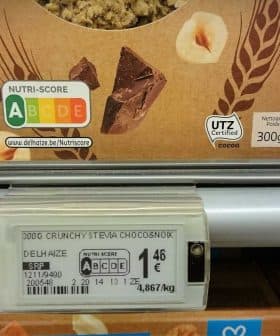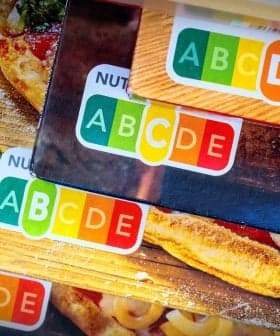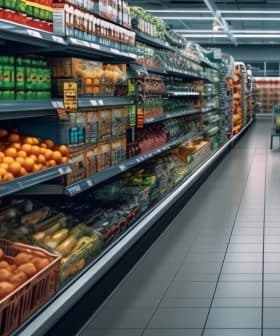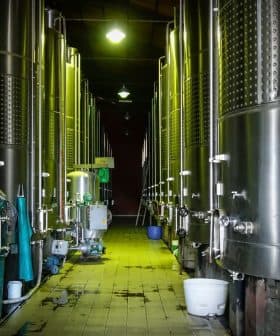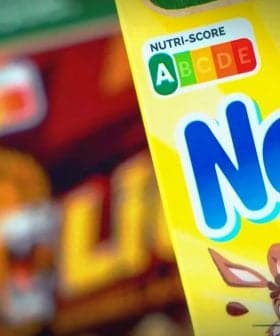Blockchain Technology Coming to Olive Oil, Someday
As the bottle moves through the supply chain it can be tracked. When it changes hands from wholesaler to retailer to consumer, each step is noted with another transaction on the blockchain.
 6777725_l
6777725_lExperts suggest that the technology behind Bitcoin, known as blockchain, could be used to combat olive oil fraud by tracking the product’s journey from the farmer to the store shelf. Companies like Everledger are already using blockchain to prevent wine and diamond fraud, and while the cost of implementing this technology may increase the price of olive oil by about 20 percent, it could ultimately lead to a market shift towards higher quality products at affordable prices.
The technology behind the controversial cryptocurrency, Bitcoin, could be used to combat olive oil fraud, according to experts.
Blockchain is a secure digital ledger that can be shared among computer networks. The technology records information, such as transactions, into blocks that are copied across computer networks.
Anyone with access to the blockchain could see exactly what hands the product has been through, all the way from the olive farmer to the shelf in the supermarket.
“In a blockchain system, it will be registered each time a product is handled in some way,” said Kristoffer Just, a consultant on the uses of blockchain in supply networks. “For example, when the olive oil is bottled, certified and transported.”
Each transaction is encrypted and given a unique identification number. Any changes made to a transaction appear as a new block on the chain with a different identification number, meaning previously entered transactions cannot easily be changed. The information can also be constantly updated by multiple parties with all the data appearing on a single blockchain.
“This information is visible to everyone in the supply chain, it is constantly updated and cannot be manipulated,” Just said. “That way, anyone with access to the blockchain could see exactly what hands the product has been through, all the way from the olive farmer to the shelf in the supermarket.”
This technology is currently used by Everledger, a company that uses blockchain to prevent wine and diamond fraud.
“I think that [the technology is] absolutely applicable to olive oil,” Calogero Scibetta of Everledger said.
“What blockchain enables you to do is that once you’ve recorded the information of production you are able to provide evidence about what it is,” he added. “The blockchain gives you this independent proof of saying yes, this has been verified by other people, therefore, there is an independent validation that is very important when you claim authenticity.”
First, Everledger goes to the vendor and authenticates the wine that is being put into the bottle. Then the bottle is photographed, given a unique identity and issued a virtual certificate of authenticity. All of this is considered its “digital fingerprint” and added as the first block in the blockchain.
As the bottle moves through the supply chain it can be tracked. When it changes hands from wholesaler to retailer to consumer, each step is noted with another transaction on the blockchain.
According to Scibetta, the process could be applied to olive oil bottles in exactly the same way without a problem.
Angel Versetti is the CEO at Ambrosus, a company that uses technology to improve global supply chains. He said that while the technology is complicated, the results are easy to see. Using a mobile app, all parties involved can follow the journey of the oil and know they are getting what they paid for.
“Consumers and any other stakeholders of the olive oil supply chain will have access to this information through mobile apps or integrated software with a user-friendly interface enabling them to have a quick and easy access to information by scanning QR codes or NFC tags,” he said.
However, adding all of this technology to the process is not cheap. It is estimated that the price of each bottle would increase by about 20 percent, but Versetti does not see the price increase as a big problem and believes that the market will eventually re-adjust.
“The market is led by price competition and seller’s motivations are going toward low-quality olive oils,” he said. “With access to safety, quality and origin information by the consumer, the information asymmetry [will] rapidly decrease in favor of good quality products at affordable prices.”
While prices may be driven down in the future, the cost of implementing the technology is currently a prohibitive factor for most producers. Just said there is a lot of interest in the technology, but he does not know of any olive oil producers using it yet.
“The producers I talked to were very positive about applying the technology, but none of them are doing it right now,” he said. “There is a lot of talk about applying blockchain, but many are waiting, as it is quite expensive to develop from scratch.”



